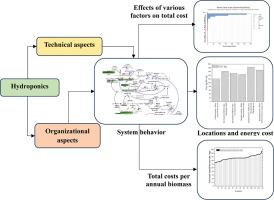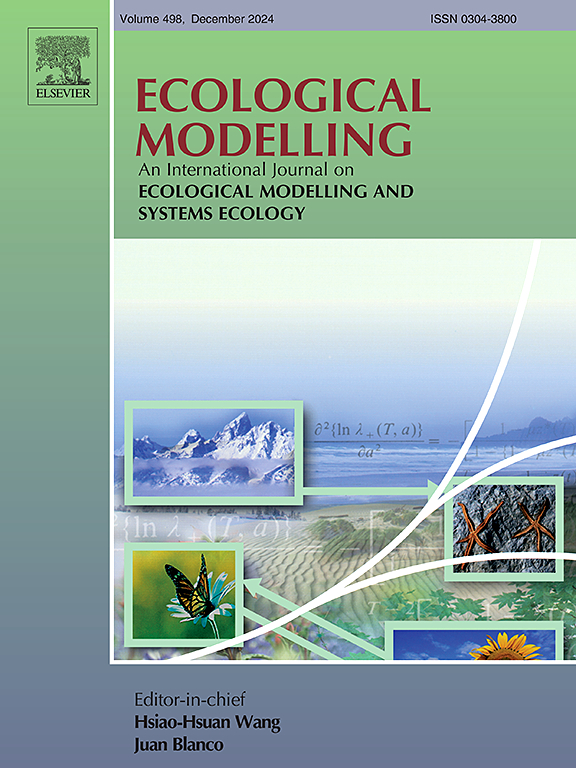A system dynamics model to assess the commercial viability of hydroponics product service system
IF 3.2
3区 环境科学与生态学
Q2 ECOLOGY
引用次数: 0
Abstract
Hydroponics, a soilless farming technique, is emerging as a sustainable alternative to traditional agriculture. However, large scale adoption of hydroponics is hampered by higher capital and production costs and inadequate technical expertise at the farm level. As a result, the manufacturers and entrepreneurs involved in hydroponics systems are exploring different business models to enhance commercial viability and adoption. Since these business models include a combination of products and services, they are better viewed as Product-Service systems (PSS). The objective of this study is to develop a System Dynamics (SD) model of a result-oriented hydroponics PSS to guide decisions on plant, energy, and nutrients to manage yield and production costs. The study uses the SD method to model the relationships between technical factors such as nutrient delivery, water quality, light, humidity, temperature, and PSS factors such as location choices, product and service quality. The model results reveal that light and humidity have a higher impact on crop yield when compared to factors such as flow rate, electrical conductivity, and nitrogen levels. The results also show that location choice, product, and service quality can affect production costs by 5–25 %. These insights contribute to a holistic understanding of hydroponics as a PSS, offering practical guidance for businesses, policymakers and researchers to enhance the commercial viability of hydroponic farming and promote sustainable food production.

一个评估水培产品服务系统商业可行性的系统动力学模型
水培法是一种无土耕作技术,正在成为传统农业的可持续替代品。然而,由于资金和生产成本较高以及农场一级技术专门知识不足,水培法的大规模采用受到阻碍。因此,参与水培系统的制造商和企业家正在探索不同的商业模式,以提高商业可行性和采用率。由于这些商业模式包括产品和服务的组合,因此最好将它们视为产品-服务系统(PSS)。本研究的目的是建立一个以结果为导向的水培PSS的系统动力学(SD)模型,以指导对植物,能源和营养的决策,以管理产量和生产成本。该研究使用SD方法对技术因素(如养分输送、水质、光照、湿度、温度)和PSS因素(如地点选择、产品和服务质量)之间的关系进行建模。模型结果显示,与流量、电导率和氮含量等因素相比,光照和湿度对作物产量的影响更大。结果还表明,区位选择、产品和服务质量对生产成本的影响为5 - 25%。这些见解有助于全面理解水培作为一种PSS,为企业、政策制定者和研究人员提供实用指导,以提高水培农业的商业可行性,促进可持续粮食生产。
本文章由计算机程序翻译,如有差异,请以英文原文为准。
求助全文
约1分钟内获得全文
求助全文
来源期刊

Ecological Modelling
环境科学-生态学
CiteScore
5.60
自引率
6.50%
发文量
259
审稿时长
69 days
期刊介绍:
The journal is concerned with the use of mathematical models and systems analysis for the description of ecological processes and for the sustainable management of resources. Human activity and well-being are dependent on and integrated with the functioning of ecosystems and the services they provide. We aim to understand these basic ecosystem functions using mathematical and conceptual modelling, systems analysis, thermodynamics, computer simulations, and ecological theory. This leads to a preference for process-based models embedded in theory with explicit causative agents as opposed to strictly statistical or correlative descriptions. These modelling methods can be applied to a wide spectrum of issues ranging from basic ecology to human ecology to socio-ecological systems. The journal welcomes research articles, short communications, review articles, letters to the editor, book reviews, and other communications. The journal also supports the activities of the [International Society of Ecological Modelling (ISEM)](http://www.isemna.org/).
 求助内容:
求助内容: 应助结果提醒方式:
应助结果提醒方式:


